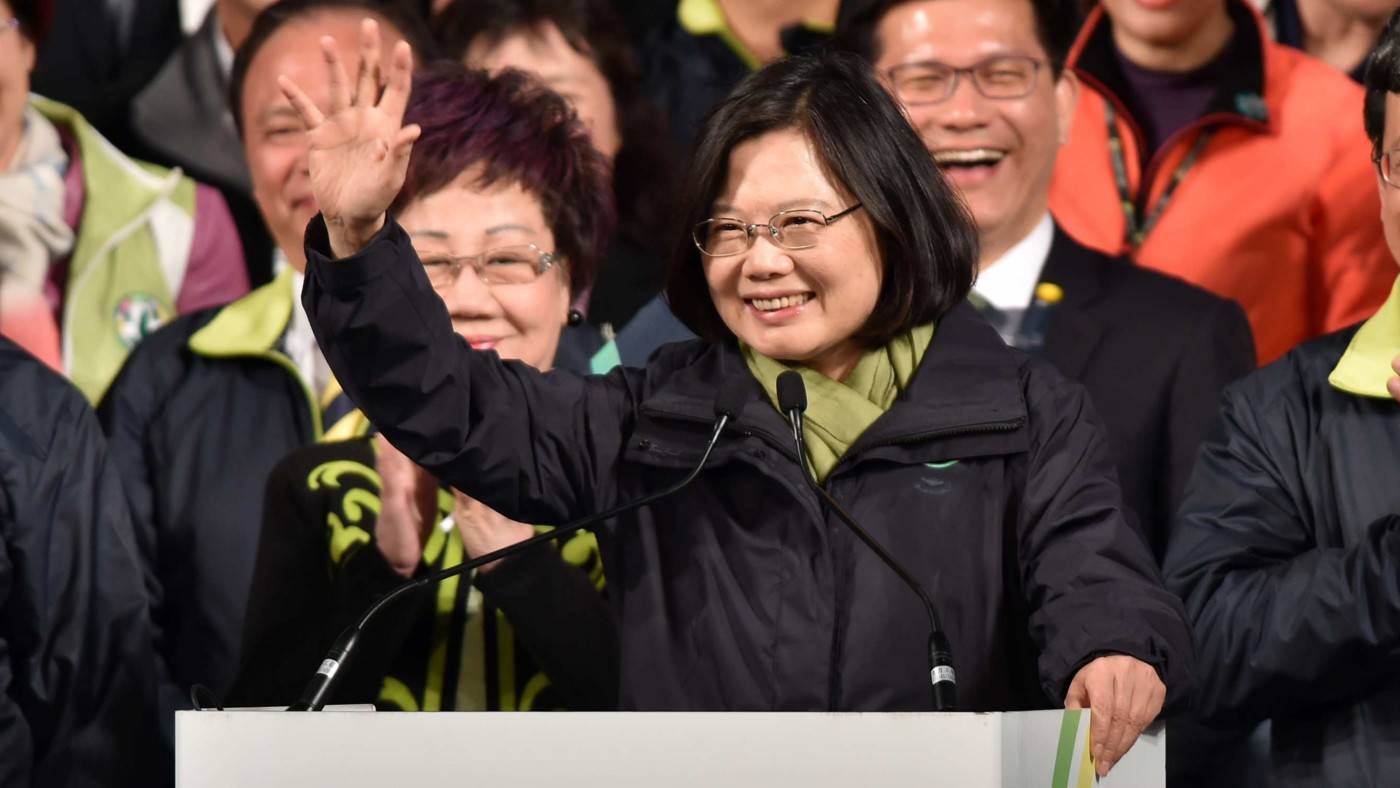The citizens of Taiwan have spoken and the message they have sent to the People’s Republic of China is quite clear: it’s time for the Taiwanese to take back control and decide on the course of the nation on their own.
Tsai Ing-wen swept away her opposition with 56.1% of the votes to lead her pro-independence Democratic Progressive Party (DPP) to victory in Saturday’s elections. Rival Eric Chu from the ruling Kuomintang (KMT) conceded defeat with only 30.1% of the votes. Further consolidating her triumph, Tsai and the DPP secured 68 of the 113 seats in the Legislative Yuan, Taiwan’s parliamentary body. While Tsai will only be sworn in as President on May 20th, and for now remains president-elect, current president Ma Ying-jeou will be the “lamest of ducks” with the KMT only able to secure 35 seats in the Legislative Yuan from February 1st.
China has been quick to respond to the DPP’s victory. In a statement issued by a party spokesperson, China’s government once again stressed its objection to Taiwan’s formal independence:
“There is only one China in the world, the mainland and Taiwan both belong to one China and China’s sovereignty and territorial integrity will not brook being broken up”.
This is the challenge facing Tsai. While her predecessor kowtowed to China’s economic demands and drew the two economies closer with trade agreements, Taiwan’s economy has been feeling the effects of the global slowdown and China’s faltering growth, posting a weak Q3 result which showed a one percent decline. Public sentiment shows the niggling fear of a Chinese takeover thanks to Ma’s legacy of deep economic ties with China. In a New York Times feature, Yang Shih-wei, a 27 year-old Taiwanese banker, gives his opinion: “We’re not against trading with China. We are afraid of China taking over our country”. According to Huang Kwei-bo, an associate professor of diplomacy at National Chengchi University who served as a policy advisor under Ma, China’s motivation is clear: “Mainland China has tried very hard to buy Taiwan, to win the support of Taiwan’s people economically. But I don’t think that strategy really works.”
China is aiming to make Taiwan weak and vulnerable through the possibility of boycotts, but not so much to risk international backlash or a Taiwanese revolt. Tsai will need to build up Taiwan’s economy to stand with greater autonomy apart from China’s. That involves bringing jobs back to Taiwan. As a trade expert, who helped with negotiations for Taiwan’s 2002 introduction into the World Trade Organisation, Tsai has plans to end the economic over-reliance on China (over 40% of Taiwan’s exports go to China and Hong Kong) and pursue boosting ties with the rest of Asia. The DPP wants Taiwan to join the Trans-Pacific Partnership (TPP) in which China plays no part. This could lead to sweeping regulation reforms, as the island pivots to other trade partners.
Watching with “profound interest” on the other side of the world is the United States. The State Department released a statement congratulating Tsai and maintained America’s commitment to cross-straits peace. Obama’s administration wasted no time in sending Deputy Secretary of State Antony Blinken to meet with Chinese officials in charge of Taiwan, while Blinken’s predecessor, William Burns, hurried to meet with Tsai and her DPP representatives. This extended three-way interaction could be instrumental in determining the outcome of Taipei-Beijing interactions during Tsai’s four-year term.
Tsai has been elected in a time where many Taiwanese are turning their backs on closer ties with China, while Beijing sees reunification as the ultimate, inevitable goal. Gaining greater control over policy-making and potentially more leverage over Beijing in cross-straits dealings will be a useful weapon in her political arsenal. It remains to be seen how she will use this power to handle issues weighing on voters’ minds.


